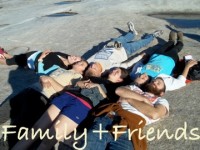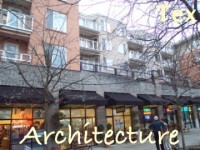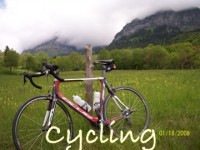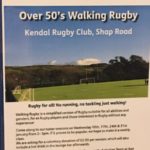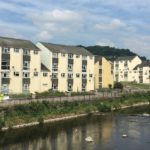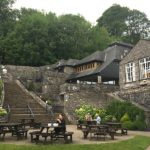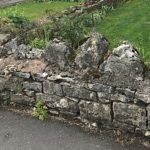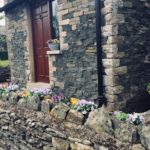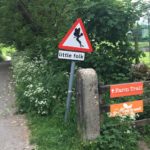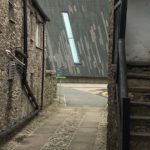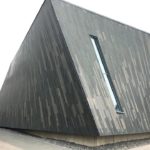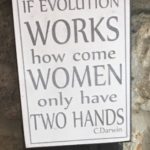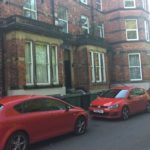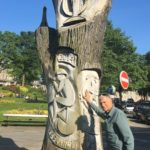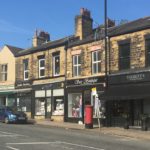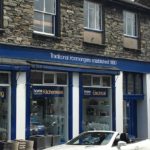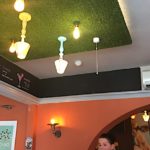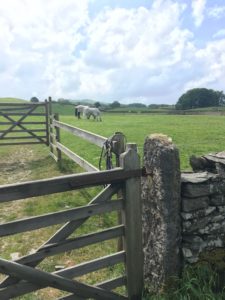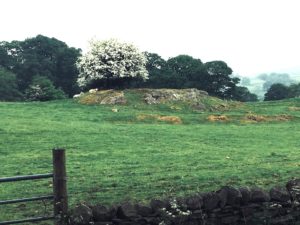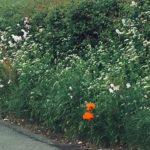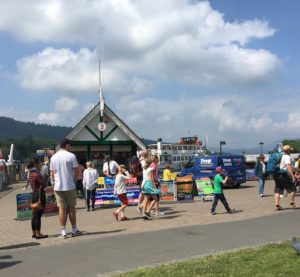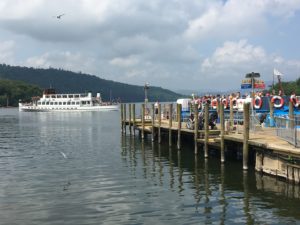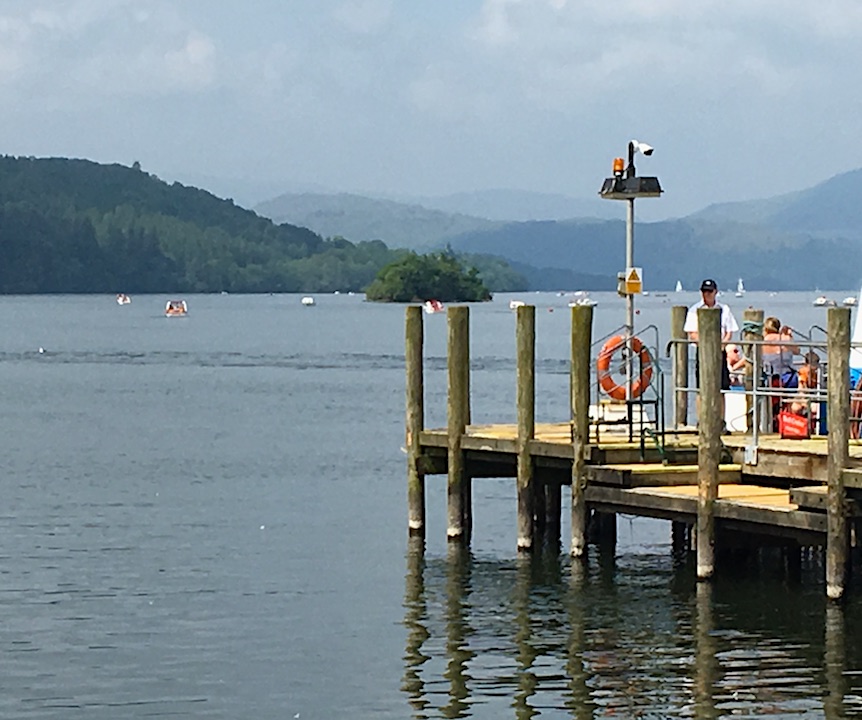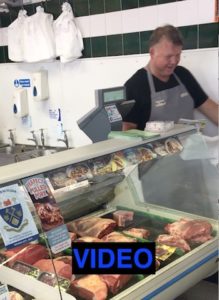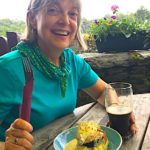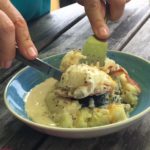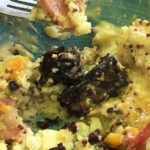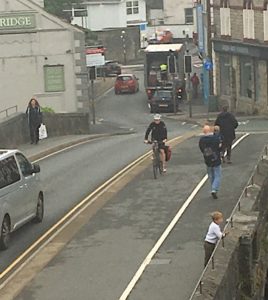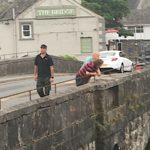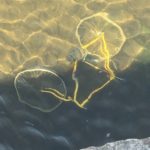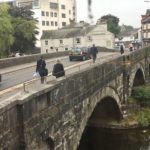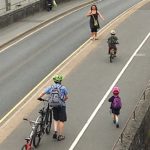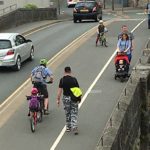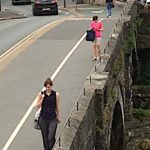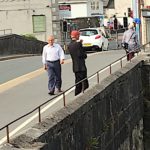This is, first and foremost, a family page–a scrapbook of family events for and by my wife, kids and myself. And since family easily extends into friends, and the boundary sometimes blurs, it will likely become a a record and celebration of our friends as well. We’ll start with a trip to Hawaii to cheer on Kathryn as she competes in the Ironman World Championship and see where the blog experience leads us. If you aren’t following this blog in real time, it will make the most sense to scroll to the bottom of the page and read posts in sequence (scroll upwards).
Every adventure has moments or photos that don’t fit a post but are worth noting. Here’s our No. England scrapbook.
- Still trying to wrap my mind around this. No tackling allowed? Should they stick to croquet?
- Social housing in Kendal on the River Kent–a premium site that might be reserved for high-end development in the US
- Brewery Arts in Kendal–an old brewery and warehouses converted for theater arts. Grants and benefactors assure that it remains a community asset.
- England’s answer to Mexico’s rock walls topped with embedded glass.
- Or wall top option: fill with flowers.
- Old Sizergh Farm: any place that promises a fairy crossing must be worth a visit.
- The only modern building we found in Kendal is this performing arts center for Kendal College of Art and Design. It is tucked behind old stone buildings and can’t be seen from the street.
- Performing Arts Center
- Rain screen corner detail. The panels are strips of solid-surface material.
- Creationist pub sign?
- Old meets new in Leeds: cars, trash cans, find their place at the front entrance of many apartments.
- Harrogate was a finish town for 2014 Tour de France. Here’s their memorial to the event.
- From cheesemonger to fishmonger…
- …England is full of mongers!
- Turf ceiling anyone?
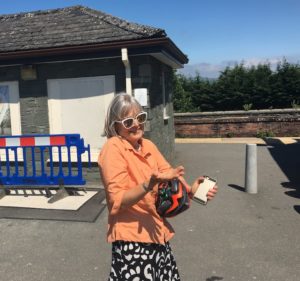
The only way we found to know if Northern trains were running was to go to the station and read a video board. Nope, no trains today.
The Northern Railway trains to and from Kendal were mostly canceled during our stay due to “lack of drivers” leaving us to take a taxi or emergency bus to get to Windermere or Oxenhall. Nobody seemed to know exactly why. One story was that Northern was cutting out conductors, leaving the train driver as the only employee to run the train, check tickets and “sort it” if there was an altercation. This struck the drivers as impossible work conditions and they responded by frequently calling in sick.
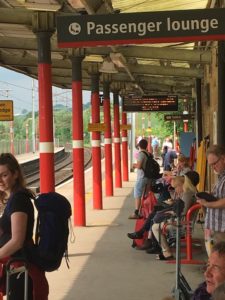
Waiting at Oxenhall station after a short taxi ride from Kendal. Transpennine Express trains were running reliably and zipped us back to the airport.
Northern claimed they didn’t have enough trained drivers and weren’t getting applicants, but our taxi driver disputed that as he didn’t see any “adverts” posted for train drivers. Plus, he opined, drivers make L50,000-L75,000 a year, a very respectable wage, and many people would want those jobs. Northern suggested they might stop operating the route as it was a money-loser, but the national government declared that Northern HAD to continue or else, according to our taxi driver.
Regardless, between regular buses, special buses and taxis, everyone seemed to fare reasonably well. The transportation system showed redundancy and resilience, in planning-speak. The biggest worry, expressed by one local, was that “it looked bad for the Lakes District not to have trains with the main tourist season about to start.”
Think Super Bowl in Atlanta with MARTA drivers on strike. Atlanta would look bad. But does Atlanta’s transportation system have enough redundancy and resilience to move people anyway?
On Thursday we needed to return the bikes so we re-traced our route to Windermere (the town) and continued on a mile to Bowness-on-Windermere, home of Lake Windermere ferries. “Lake Windermere” is actually redundant and historically incorrect since “mere” means “water”, but when a town near the mere took on the name “Windermere”, something had to be done to stop the confusion. Windermere (the lake) is the largest lake in England and a popular spot for water sports, though at 1/10 the size of Lake Lanier and a summer water temperature around 60 F, most Georgians will not be impressed.
We had an idea to take a ferry across the lake and pedal up to Wray Castle, but the ferry ranevery hour and our timing was such that we weren’t going to make it back to Windermere (the town) by 5 PM to return our bikes. So we opted to watch people, dogs and boats for an hour before returning to Cycle Hire and taking a taxi back to Kendal.
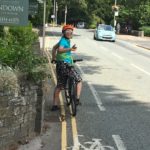
Pedaling through Bowness-on-Windermere: note 2′ wide “cycle path”, common where we biked–it works well enough, especially if cars limit speed to 25 mph.
Cumbria is the province that is home to Kendal and the Lakes District, and it reportedly has distinctive characteristics–though they might not be the ones that follow in this post. I mostly like the word “Cumbria” and want to get it into the blog!
Northern England clearly has a dialect—a country twang, one might say—and regular Brits think it harder to understand than the educated English of business London and Southern England. Since I’m still looking for my “London Card” and I still don’t have a hearing aid, I agree. You can decide for yourself by listening to the butcher.
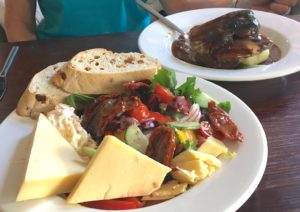
Final day’s lunch: Lamb Henry (not to be confused with Henry Lamb, English painter) turns out to be slow-cooked lamb over mashed potatoes in a mint, currant and vinegar gravy. It was very tender. The “lite dish” salad featured a full pound of local cheddar cheese, which answered our question of what to have for dinner.
The regionality of food dishes is less certain to novice UK travelers like us, but when Black Pudding and Lamb Henry repeatedly showed up on Cumbrian menus, Betsy and I thought we should give them a try. They are Cumbrian to us. Lamb Korma and Tom Kha Gai also show up frequently in Cumbria, but I know better than to try to convince you that they are Cumbrian!
- Everything you want to know about Black Pudding. 1) Add a Guinness
- 2) the black part is SAUSAGE, served with egg, potatoes, cream sauce
- 3) the sausage is very mild and slightly earthy; dried blood gives it the black color; it makes a hearty meal
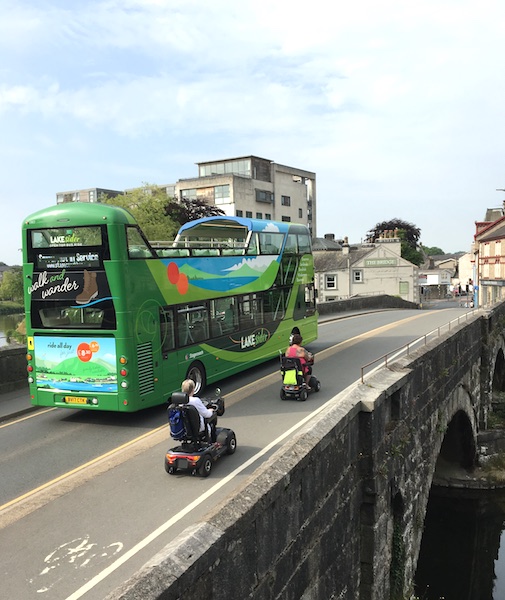
Our hotel room was perched on the corner of the hotel with windows overlooking the Stramongate Bridge. My first thought was that traffic noise might define our hotel experience, but cars and trucks quickly faded to the background as we began to watch the bridge, the river, and the parade of Kendalians.
A person can anonymously meander back and side streets for a while, but ultimately to cross the river one must go to the bridge. A bridge concentrates people. It also provides a long vista, a place to pause, take a breath and gaze.
It is a meeting point of nature and city, a brief interlude of water, air, and birds within the grid of buildings and traffic that structure urban life.
- Hmm, why is that there?
- A bike with a story…
- Bound for work
- Walking….
- Riding….
- Two red ties
- Cell phone check
- Time for a smoke
- Awaiting bus at foot of bridge

